What Is Spread in Forex Trading and How to Calculate It
Spread Meaning in Forex Guide: Forex spread defines the bid-ask price differential, representing the cost of entering a trade instantly.
简体中文
繁體中文
English
Pусский
日本語
ภาษาไทย
Tiếng Việt
Bahasa Indonesia
Español
हिन्दी
Filippiiniläinen
Français
Deutsch
Português
Türkçe
한국어
العربية
Abstract:The Nigerian Stock Exchange (NSE) was founded just a year after her independence in the year 1961. The first stock exchange market was established in Lagos. From here it spread to other parts of the country. As of today, over 4,900 companies have been listed on the NSE. On the Fixed Income market, the NSE has over 96 FGN bonds, 31 state bonds, 34 corporate bonds, 2 supranational bonds, and 53 memorandum listings.
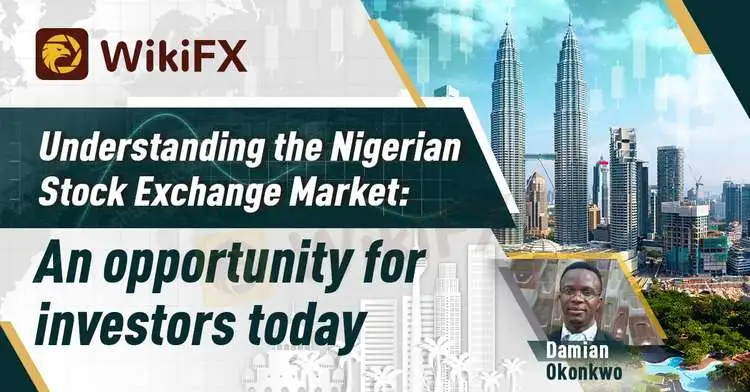
By: Damian Okonkwo
Meaning of Stock Exchange Market
The stock exchange market is a centralized market where securities, such as company's stocks are bought as investments by individuals including the government in the hope of receiving higher returns as the company's network and stock value appreciates. When an individual purchases a company's stock, he becomes a legal shareholder in the company and is eligible to claim part of the company's residual assets and earnings based on the point he purchased. Stocks and shares are synonyms used interchangeably.
The stock exchange does not own shares any shares rather it acts as a market platform where stock buyers easily connect with stock sellers making buying and selling of stocks easy and reliable.
With the advancements in technology today, buyers and sellers no longer need to visit the open market to buy stocks but can simply do so from the comfort of their homes. This is made possible through stockbrokers.
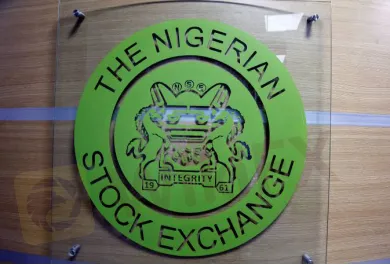
How does the Nigerian Stock Exchange Market operate?
The Nigerian Stock Exchange Market runs an Automated Trading System (ATS) which was established by the Nigerian government on April 27, 1999. The ATS connects buyers with sellers and dealers through a computer network also known as Electronic Communication Network (ECN).
What are the trading hours for the Nigerian Stock Exchange Market?
The Nigerian Stock Exchange Market is every day from Monday to Friday at 9.30 a.m and closes at 2.30 p.m. Traders are free to carry out their transactions during these hours.
How can one Find the prices of different companies' stocks to purchase?
The Market prices of the stocks for all the companies listed on the NSE alongside an All-Share Index, NSE 30, and Sector Indices, are published daily in The Stock Exchange Daily Official List and also on the Nigerian Stock Exchange CAPNET (an intranet facility). Recommendations on the best stocks to buy can be found on the Wikifx.com website.
Who regulates the Nigerian Exchange Market?
The Nigerian Exchange Market is regulated by the Security and Exchange Commission (SEC) and supervised by the Federal Ministry of Finance.
Nevertheless, it is important to note that the stocks sold at the Nigerian Stock Exchange (NSE) are privately owned and regulated by the owners. The SEC only supervise the NSE to ensure that various companies fulfill their mandate to the shareholders. They protect the investors from fraud and bridge of trust.

Disclaimer:
The views in this article only represent the author's personal views, and do not constitute investment advice on this platform. This platform does not guarantee the accuracy, completeness and timeliness of the information in the article, and will not be liable for any loss caused by the use of or reliance on the information in the article.
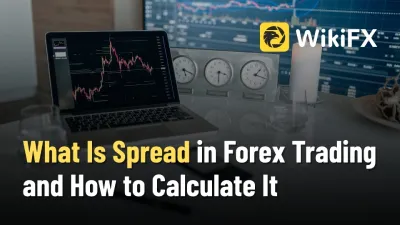
Spread Meaning in Forex Guide: Forex spread defines the bid-ask price differential, representing the cost of entering a trade instantly.
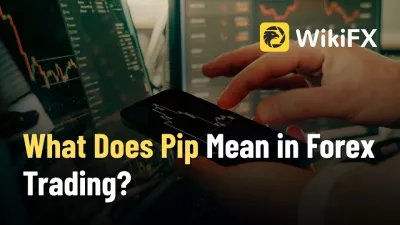
In forex trading, a pip is the smallest unit of price movement between two currencies. It’s used to measure changes in exchange rates, calculate profits or losses, and manage trading strategies effectively.
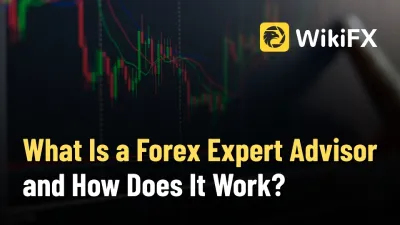
A forex expert advisor is an automated trading tool that executes strategies in the forex market. Learn how it works, its benefits, risks, and future trends.

A liquid broker connects traders to deep forex liquidity from banks and institutions, offering faster execution, tighter spreads, and transparent real-market pricing.
